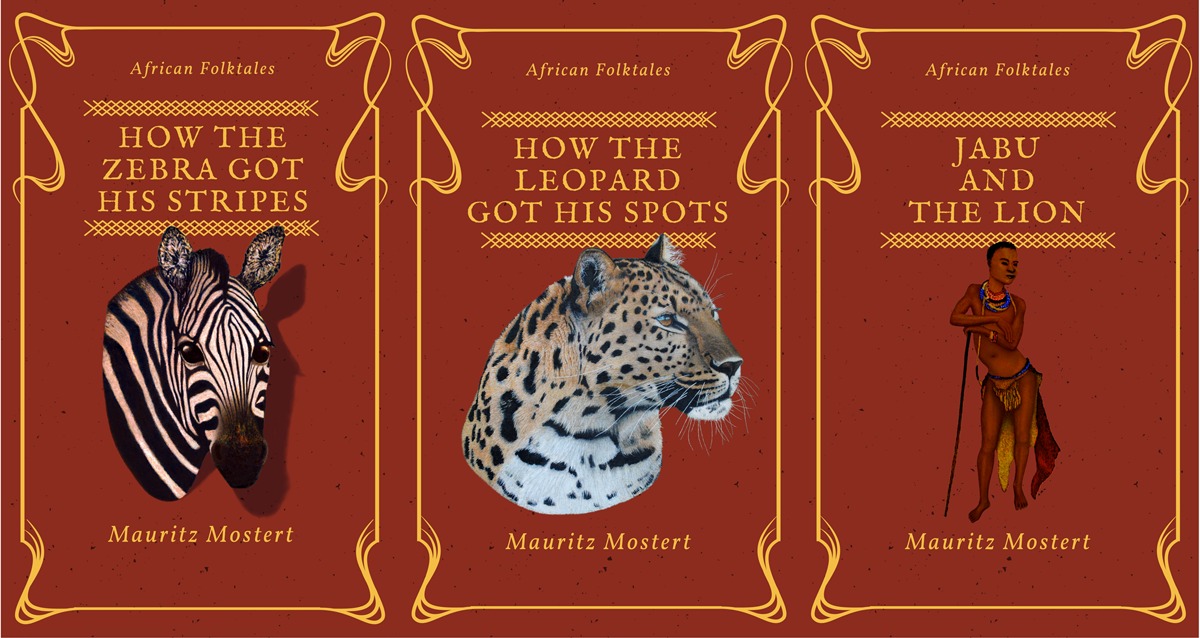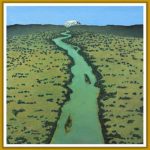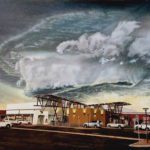To Remember When, Means Folktale Time

Not all memories are worth a makeover?
It’s a trilogy! To most authors, that means good news. On my account, the books I write are somewhat short and three do not even constitute one whole book – 80,000 words. So the battle rages and we keep on, keeping on.
By now, most of our readers know a little of my bushveld background, but if not, you missed nothing. The reason I raised that subject is to explain why the African Folktales feature so prominently on Wildmoz.
Because of this bush background, as a child I had no choice but to listen to folktales or folklore almost every evening after dinner – usually in the boma – no radio, you see. TV, what’s that? Some modern and some old folktales. The choice was left to the teller, unless a riot ensued from the listeners. We even had one of our game rangers tie dancing puppets, on strings, hanging from his guitar. These he made to dance while playing and giving a story. This was evening entertainment for those days. It went like this, bath and boma. Or no bath, no boma, no dinner, no pudding, no folktales. Bad, hey! What some people go to to get their children in the bath? But, it was the older folktales that most enthralled me and it’s these that pricked my ears when I first heard them.
Life happened and we move on, getting older, until one day a child made an odd remark. Suddenly, as a result, I am reeling back to my youth, with smoke coming from my heels as I screech to a halt.
Folktales! Of course, folktales… I remember folktales? What happened to all the folktales?
I began in earnest to wrack my brains and that of many friends, family, the Internet and even old books. Nothing! Well, nothing worth writing home about anyway. What happened to all the folktales, like the ones I knew?
To my sorrow, I found out that we, as a people, had forgotten our folktale heritage and missed out on a great education. Don’t believe me? Ask Albert Einstein – remember him – never mind. He was the cleverest man, – ape, thing, whatever – in the world. He believed all people should read folktales to get clever. Me, clever? No, I fake it till I make it. The folktales I found recorded, were either shortened to suit the teller or rehashed in some alien way and I could not comprehend head-or-tail of the tale in question, anyway.
Right then and there, I decided the time had come for someone to put their mind right and come up with the correct goods to set the record straight. For our grandchildren’s sake, if nothing else. Someone needed to write these folktales down for the future, before they got lost to us for ever.
Whether someone read or listened to the audio books or not, did not matter too much. At least, they were down on record, one way or another.
Most folktales are oral history, handed down from generation to generation. My feeling was, unless they were recorded, they would go missing for ever. The joke of the matter ended at ‘my feet.’ Dad, you write them down! Therefore, for better or worse, I became impelled to rewrite the African Folktales of old, for posterity. How noble is that? Not in the slightest actually, but I’m in so deep, I’m over my head with my commitments and finish, I must try.
When I began, I told my wife – who is a professional writer – to use her name as author and I’ll do the art. Cool hey? That only lasted a few years, until two of our children insisted I get brave and sign my own books. And that is how the short story books on African Folktales was born.
Well, a folktale is just a folktale, right? Indubitably not!
I like Albert Einstein’s reasoning when confronted by a woman wanting the genius physicist’s advice. This mother wanted to know what books she should read to her young son to prepare him for being a successful scientist.
“Read him folktales,” after removing his pipe from his mouth and talking over it, was all Einstein suggested.
“Fine, but what else should I read to him after that?” the mother asked.
“More folktales,” responded Einstein, once more removing his pipe to respond.
“And after that?” she asked again.
“Even more folktales,” said Einstein, waving his pipe with a sweep of his arm in conclusion, as he walked off.
What the man was meaning, is that folktales inspire a creative mind, which is exactly what scientists feed on.
I would imagine another reference may be in order. Therefore I have included that of J. K. Rowling, the author of ‘Harry Potter’ fame. She remarked to Oprah Winfrey in an interview, that she loved folktales and Oprah agreed, saying she did too.
Why did I reference these three celebrities? Because many people think reading folktales is dumb. It is not dumb, but clever, which is sad, because folktales are some of the best material being used in schools today. They teach children morals, dialog and correct writing skills in a wonderful, moralistic story. If it’s not moralistic, then it’s smut and not a folktale, but a spook-tale or some garbage like that. A loose definition of a folktale, is a story to entertain and teach morals. They could have been called morality-tales.
In 2015, ‘How The Zebra Got His Stripes’ was paired with the classic ‘Watership Down’ – by Richard Adams – as a teaching aid for 6th-8th grade literature classes in selected USA schools. I am pleased to say, the situation is ongoing and has been renewed every year since. It is very rewarding to know one’s piece of literature is being used to teach better skills and I am pleased the long-form folktale/story (about 4,000 words) is now preserved.
Many more have followed since then and now there are five Afrikaans folktales awaiting printing and the 25 Famous African Folktales is already printed in many formats. Obviously there are plans afoot, for more to come. Who would have said from the humble beginnings of 2006 this would happen. We have watched as the folktale market has exploded in the last few years, but not all are good or honest to the tradition, as were many before them either. Sad, but water always finds its own level. Eat the meat and spit out the bones.
Due to popular demand, the Wildmoz collection of folktales is
being published in a variety of formats for all to enjoy.
Click the button for books currently available.
Book Reviews:
I have had a fascination for all of Africa since I was a small child. I’ve visited many countries in Africa, and know that mankind began in Africa. I have always been interested in the ancient people and their folktales.
I don’t recall how I came to find Wildmoz, but there is so much to learn and enjoy on Wildmoz. When I came Upon the Folktales Books, they opened up a new understanding of tales which have been told orally since ancient times.
The Trilogy (I do hope there are many more of these books) includes, How the Leopard Got His Spots, How the Zebra Got His Stripes, and Jabu and the Lion.
Each of the stories make you feel as if the author is telling the stories orally. I can imagine, sitting around a campfire on a starry night, listening to an ‘old man’ tell stories he’d heard since his youth. The words flow easily and the first two folktales can easily be understood by even the youngest child. The last book about Jabu is better understood by an older child or an adult.
The personalities of the animal characters in the stories follow the traits of the real animals. Although the stories are folktales, they are true to the individual animal. All tales should have a morality statement, and these stories do not disappoint.
I found, many of the descriptions in the stories, amusing. I so liked the one about the tasamma melons quenching the thirst but leaving a strange feeling on your teeth. It immediately brought to my mind, eating a persimmon.
I would recommend these books for both children and adults.
Bobbi Lippe Mallace USA






